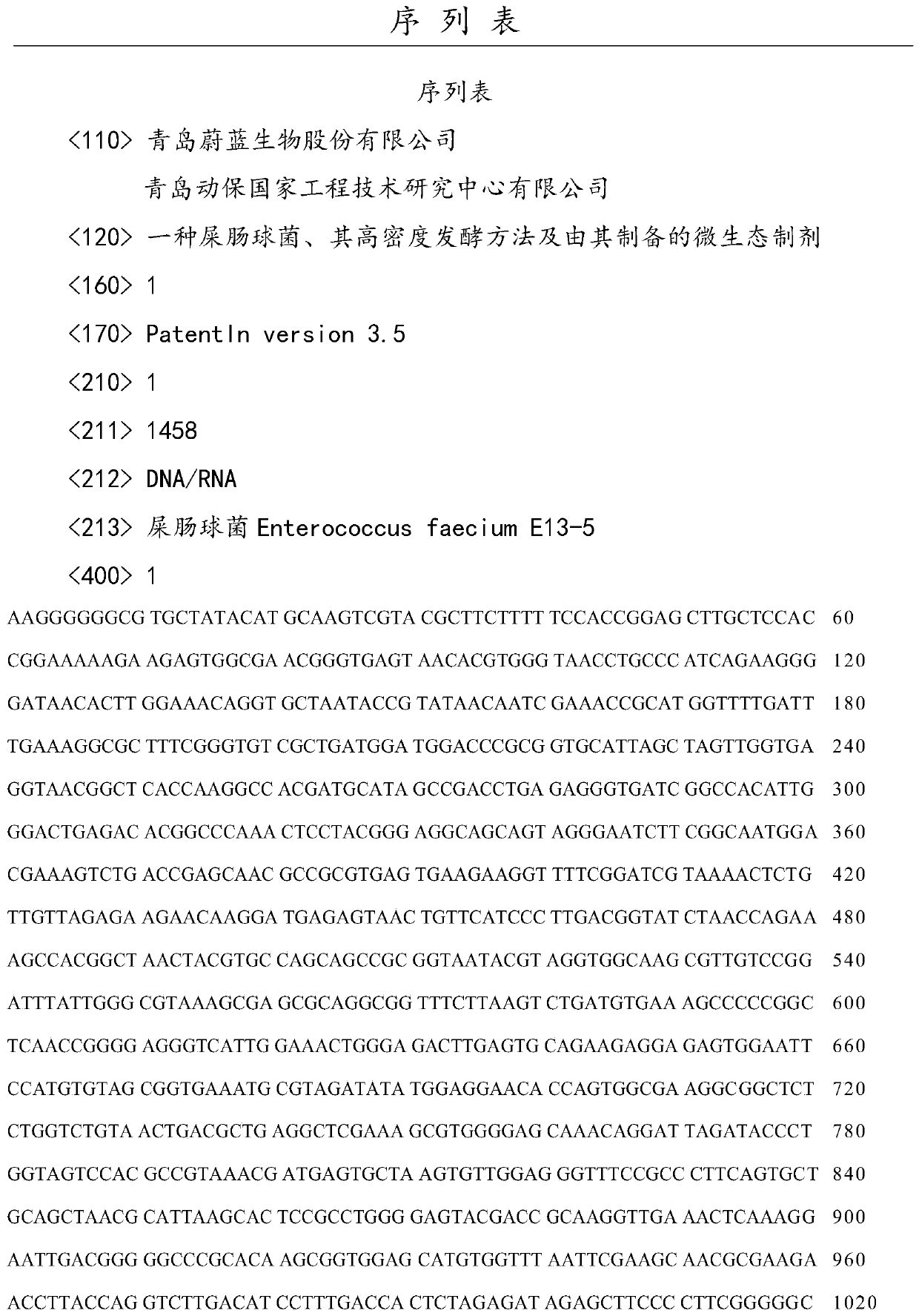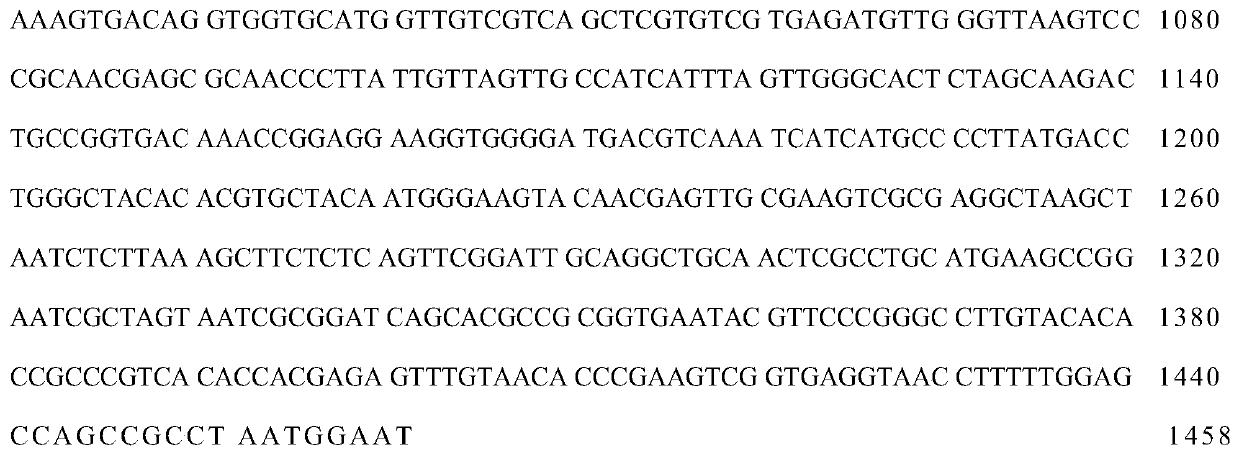A kind of Enterococcus faecium, its high-density fermentation culture method and microecological preparation prepared therefrom
A high-density fermentation, Enterococcus faecium technology, applied in microorganisms, microorganisms, preservation microorganisms and other directions, can solve the heat resistance of Enterococcus faecium, gastric acid resistance, bile salt resistance and fermentation performance can not adapt, bacterial drug resistance drug residues aggravate and other problems, and achieve the effect of significant probiotics and stress resistance, biological characteristics of bile salt tolerance, and not easy to absorb water.
- Summary
- Abstract
- Description
- Claims
- Application Information
AI Technical Summary
Problems solved by technology
Method used
Image
Examples
Embodiment 1
[0027] The present embodiment provides a new Enterococcus faecium, whose isolation, screening and identification are as follows:
[0028] Under aseptic conditions as far as possible, 1 g of the intestinal content of the rectum of healthy animals was collected with a sterile spoon, and placed in 30 mL of MRS medium (formulated peptone 10.0 g / L, beef powder 8.0 g / L, yeast powder 4.0 g / L). L, Glucose 20.0g / L, K 2 HPO 4 2.0g / L, diamine hydrogen citrate 2.0g / L, sodium acetate 5.0g / L, MgSO 4 0.2g / L, MnSO 4 0.04g / L, Tween-80 1.0g / L. ) in a 100mL Erlenmeyer flask, enriched and cultured for 8h, then drew 1mL and 9mL sterile saline to prepare a 1:10 dilution (i.e. prepared into 10 -1 diluent), vibrate for 3-5min, use a micropipette to accurately draw 1mL of the diluent into a 9 mL sterilized saline test tube, vibrate with a vortex shaker for 1-2min, and prepare 10 -2 The dilution solution, followed by 10 -3 -10 -6 Dilution, select 10 -3 -10 -6 For three dilutions, draw 200 μ...
Embodiment 2
[0037] The present embodiment provides a kind of high-density fermentation culture method of the Enterococcus faecium isolated and identified as above-mentioned embodiment, specifically as follows:
[0038] Fermentation culture method for primary production seeds:
[0039] Take the basal seeds of Enterococcus faecium E13-5 and inoculate the slant of MRS agar medium under sterile conditions for pure culture. The test tubes are cultured statically at 37°C-40°C for 24-48 hours. After passing the inspection of colony observation and microscopic examination, etc., they are used as first-class production seeds and stored at 2-8°C, and the storage time is generally not more than 1 month;
[0040] Secondary production seed fermentation culture method:
[0041] Take the primary production seed slant of Enterococcus faecium E13-5, add 4mL sterile normal saline to the slant of the strain to wash the colonies on the slant, and inoculate it into the secondary seed culture solution accordi...
Embodiment 3
[0051] This embodiment provides a preparation process of a microecological preparation prepared from Enterococcus faecium E13-5 isolated and identified in the above embodiment as the main raw material, specifically as follows:
[0052] Get a predetermined amount of Enterococcus faecium E13-5 and centrifuge under the condition of rotating speed 10000r / min to obtain the bacteria sludge, the slag discharge period is 50-60min, then mix the bacteria sludge with the protective agent (in parts by mass, the Protective agent comprises 5% sucrose, 4% sorbitol, 3% skimmed milk powder, 1% gelatin and 0.5% Vc,) carry out thorough mixing with the ratio of mass ratio 1:3, then carry out lyophilization successively under the following conditions: at -40 Pre-freeze at ℃ for 3-4 hours, vacuumize to about 20Pa at -40℃ to -45℃, sublimate and dry at 5℃ for 20-25 hours, sublimate and dry at 0℃ for 8-10 hours, analyze and dry at 25℃ for 4- 6 hours, finally close the vacuum for 2-4 hours, and freeze-...
PUM
 Login to View More
Login to View More Abstract
Description
Claims
Application Information
 Login to View More
Login to View More - R&D
- Intellectual Property
- Life Sciences
- Materials
- Tech Scout
- Unparalleled Data Quality
- Higher Quality Content
- 60% Fewer Hallucinations
Browse by: Latest US Patents, China's latest patents, Technical Efficacy Thesaurus, Application Domain, Technology Topic, Popular Technical Reports.
© 2025 PatSnap. All rights reserved.Legal|Privacy policy|Modern Slavery Act Transparency Statement|Sitemap|About US| Contact US: help@patsnap.com


